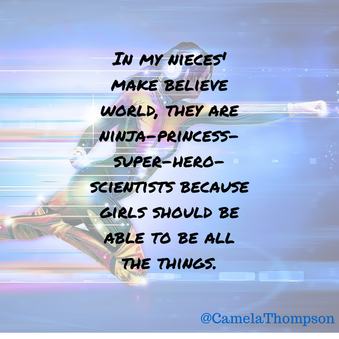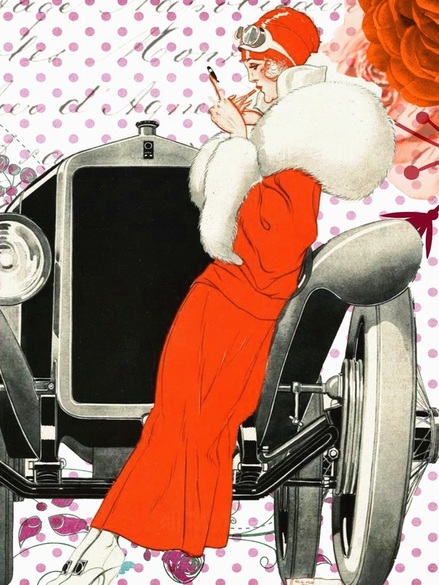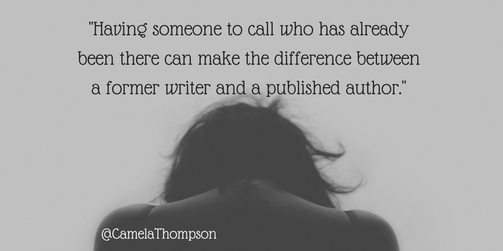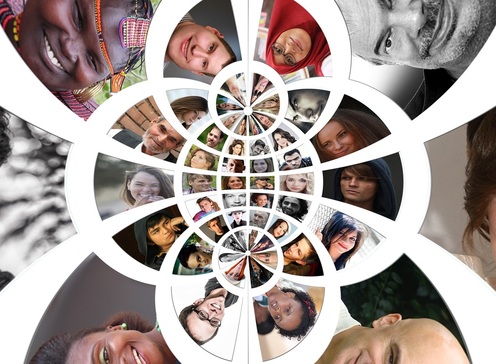|
by Camela Thompson This week I'm in chilly (but sunny) Colorado visiting the nieces for the US holiday. They are neat little ladies and the eldest went on quite a tirade about the lack of super hero options for women. She also expressed that Super Girl's moxie impressed her on multiple occasions. (Did I mention she's seven?) In my nieces' make believe world, they are ninja-princess-super-hero-scientists because girls should be able to be all the things. At once. And when they have time, they rescue the boys. My nieces are awesome. The girls enjoy Super Girl and Wonder Woman, but my eloquent niece was correct about the deficit of options. Comics have a history of providing gorgeous and dispensable female supporting cast members with very few exceptions. And those are the super charged crew. The rest are wives or girlfriends who are killed in a gruesome manner to fuel the hero's need for vengeance. It's a thing called fridging and we've even done a podcast episode on the phenomenon. The ploy is used over and over because it's effective, but it's time to grow up and move on.
My favorite heroines don't exist in comics. I think of Furiosa from Mad Max: Fury Road, Ripley from Alien, and Sarah Connor of Terminator 2: Judgment Day. The key to their power wasn't necessarily strength (although they all had it). It was the determination that allowed them to pick up the pieces when everything seemed utterly impossible and continue the journey. They had pain and growth. I've been rereading my work and realized I also crave more superheroes who are women. Physical power is a plus, but intelligence and resilience are key. In fact, the superpower I favor is resilience. For those of you who are sticklers for the traditional definition of superpower, I choose regeneration/health like Wolverine. Which is really just another form of resilience. So there. If you were to construct your ideal super heroine, what are must have attributes? Do you favor any online comics that feature a female lead? If so, what makes her awesome?
4 Comments
by Camela Thompson If you haven't seen Miss Fisher's Murder Mysteries, run to your television, laptop, or tablet and open Netflix. As someone who grew up watching Murder She Wrote and is a bit of a (raging) feminist, this show is close to perfection (minus Episode 9 in Season 2). A woman driven to solve murders simultaneously makes a stand against the conventional expectations women are held to in the '20s by living her own life to the fullest. I sprinted through the series, which makes me a little sad now that I know there has not been a commitment for another season (but there has been chatter around a potential movie, so I have hope!!). The only solution to deal with the withdrawal was to start the series over again.
When I watch a movie or television, I can't help but notice what works for me and what doesn't. Maybe a small part of this behavior is my need to feel like I'm accomplishing something, even when I'm supposed to be relaxing. Which is counterproductive to the implied purpose, which would be: RELAX. I also realize that we can always learn things that apply to writing. What makes a character resonate with us on screen isn't all that different than what we relate to in a book. With that in mind, here are some things I've learned from Miss Fisher. A Strong Woman Can Be Interested in Men In Miss Fisher's case, the more men the better. The character challenged the double standard: A sexually liberated woman is considered a slut where a man is considered accomplished. She loved freely and she did it without giving up her freedom. A Little Romance is a Good Thing The sexual tension between Jack and Phryne was wonderful. I'm not a romantic, but I loved how the two played to one another. Even more so because they were opposites. The straight edge, traditional man challenged by a stubborn, intelligent woman who showed no interest in settling down. The two worked well together, but Phryne's untraditional approach to life created realistic issues. Jack had to decide whether his love for her was strong enough for him to reconsider his position on a lot of topics. The two extremes pulled one another closer to moderation. Character Development is Key A strong main character is a must. Developing peripheral characters that the audience grows to love makes the show even better. Initially, Aunt Prudence seemed like a little much, but as the seasons went on, I grew to love her good intentions and big heart. Variation and contrast force the character to grow, and people are a great way to push the issue in a manner that feels organic. This requires a peripheral character to have a back story and grow as well. Many Mistakes are Forgivable Pushing people away, acting out, and making critical judgment errors aren't necessarily the end of a character in the viewer's eyes. If the person means well or earnestly attempts to make amends, it can go a long way. The key is to give the character redeeming qualities. Perhaps the woman who lied to the police and had an affair only did those things to protect the person she loved fiercely from blackmail exposure. Some Mistakes Cannot Be Forgiven A misstep in an episode can be overlooked, but it's important to correct quickly. If the audience begins to despise a character, especially the main character, your series may never recover. Major missteps around social issues or other problems may be avoided with feedback. These lessons can be applied in writing, especially applied to a series. Now I need to get back to petitioning Netflix to pick up the series and retain the original writers. Random question: Can you believe Essie Davis (Phryne Fisher) was also the mother in the The Babadook?? by Camela Thompson Early in October I had the pleasure of participating on a panel on Women's Issues in Publishing. As we got ready for the presentation and looked at Patricia's deck (which can be downloaded here and has some excellent resources), we were both excited and depressed. The numbers are clear. There is still a disparity in publishing between men and women whether you're looking at who gets published, who gets reviewed, or who gets better pay (and a management position) in a publishing house. We've found stories posted by women who've spoken out about how their books are labeled (titles and covers) and the greater success they've experienced querying under a gender neutral name. Even after all of these statistics, we still have articles like this where people express their worry over an emerging publishing workforce dominated by women. It's daunting. And spouting those statistics and first hand stories to women writers in the audience had the potential to be discouraging. It isn't too surprising we were asked the question: "What can we do to encourage women writers?" There are many things that have helped me as an author, and I'm sure many of these points apply to any writer.
Don't Shove Someone into a Genre My husband and I were watching Crimson Peak, and we burst into laughter when the protagonist was told that she needed to focus more on romance. We laughed even harder when she decided to type her manuscript to hide her feminine handwriting. Lance turned to me and said, "Some things never change." There is absolutely nothing wrong with romance. Just don't assume a woman writes romance. If she does write romance, don't assume the writing isn't amazing. I still run into the Genre Gender Bias. Resist Bad Mouthing Constructive criticism is a good thing. What I have a problem with is talking behind another writer's back or blasting someone all over the interwebs. I prefer to leave critique to the reviewers. I know this won't be my most popular point, but I think there is enough negativity for an author without me adding to it. I have opinions like anyone else, but it's something I continue to try to live up to. Mentor You'd think writing a story from beginning to end would be simple enough, but there are so many ways to get lost. I've experienced most of them. Navigating technology, marketing, and all of the other steps during and after publishing is also overwhelming. Having someone to call who has already been there can make the difference between a former writer and a published author. Beta Read No one should write in a vacuum. After months on a project, even the most glaring mistakes become sneaky ninjas. A fresh set of eyes is a great thing if those eyes come with constructive criticism. Consider the differences in the following examples and decide what you would rather receive as a writer: "I don't like the scene." "I don't think Jack's reaction is believable. If he reacts this way, there needs to be a reason portrayed to the reader. Otherwise, I would emphasize the shock someone would normally experience in this situation rather than amusement." Another important quality in a beta reader is the ability to point out what the writer does well. A long list of problems without any positive points would discourage anyone. Collaborate It's awesome to see someone I've helped in some way succeed whether it be a pitch workshop, a beta read, or help on a marketing campaign. You don't need to donate the time it would take to mentor or beta read to have an impact. Kind words at the right time can make all the difference. There have been a lot of achievements women can be proud of. The all time Best Seller list on Amazon is dominated by women, and the New York Times Best Seller list from a few weeks ago held a healthy share. Women have blazed some very impressive trails, and it's up to us to keep raising the bar. Collaboration may be the key. How do you prefer to be encouraged as an author? Is there something you would add to the list? by Camela Thompson "I have a character who is a young girl and I want to write from her perspective. How do I do that?" The question was asked in class, and people volunteered suggestions to enable the gentleman to observe and interact with the demographic. The advice missed two ingredients: empathy and fearlessness. The answer came to me while I was reviewing a recent podcast covering Evil A.I. It was our observation that the major perceived flaw (from a human perspective) in a physical manifestation of artificial intelligence is lack of empathy. A walking robot makes people uncomfortable unless it is somehow capable of imparting the illusion of emotions. This was the theme of Ex Machina and empathy is why we love Wall-E. The trick to understanding and emulating a character's actions is empathy: The ability to step into the character's shoes and imagine what they are experiencing on an emotional level. This means we have to understand what motivates them, likes and dislikes, how likely they are to express an opinion... These things require understanding emotional undercurrents Expressing a perspective that is different than our own is frightening. What if we do it wrong? What if we say something ignorant? In addition to fear of missteps, stepping into someone else's shoes requires digging into your own pain and applying it to a different scenario. It could hurt. We could be criticized. We could be mocked.
From where I stand, it's worse not to try. If I don't try to say something meaningful, I never will. Is staying safe really worth missing out on expressing something amazing? I have no problem writing from the male perspective. I don't have a problem imagining what my characters are motivated by and what they want to accomplish. But I've been sticking primarily to white, middle-class characters. Now I can see I've done a poor job with the diversity that I have introduced. And I want to do better. It's time to dig into my own pain and take some risks. I'd rather look like a jerk to the people I know than the world at large. Don't think for one minute I won't be asking for help. I worry about portraying a character respectfully and accurately. I will be willing to ask if I'm doing a decent job. Have you written outside of your comfort zone? What helped you? |
Camela ThompsonFreelance writer and Dark urban fantasy author featuring vampires with bite. My BooksCategories
All
Archives
July 2020
|




 RSS Feed
RSS Feed